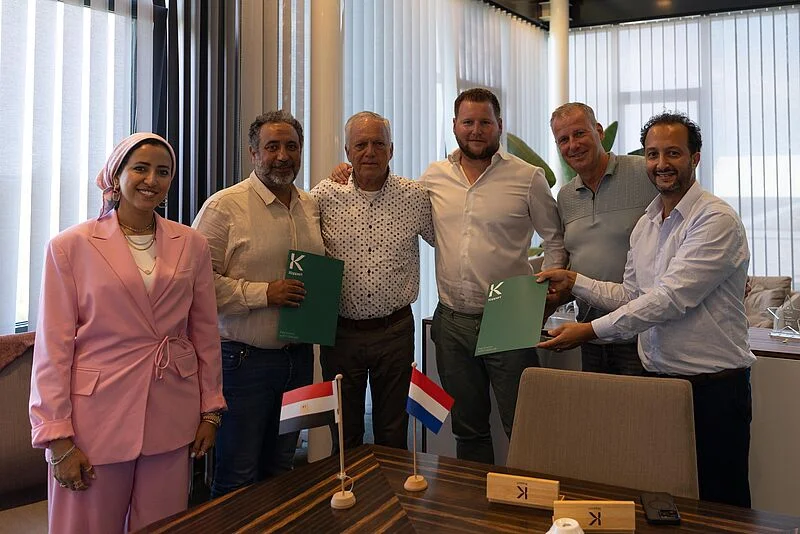Friday, 6 February 2026

Image Source: Koppert
In a quiet but powerful signal of how far sustainable agriculture has come, Koppert Biological Systems and Fresh Energy have renewed and expanded their partnership following Egypt’s first successful large-scale biological crop protection program in commercial greenhouse production. The new agreement, signed on July 10, extends the use of Koppert’s solutions to 300 hectares of sweet pepper cultivation, marking a significant shift in how Egypt’s greenhouse sector approaches pest management and sustainability. It’s a moment that redefines the possibilities of biological farming in arid regions and positions Egypt as a rising contender in the global race for cleaner, greener agricultural systems.
At the heart of this expansion is the undeniable success of last season’s initiative—an unprecedented full-scale deployment of Integrated Pest Management (IPM) using only biological inputs. Delivered in partnership with local stakeholder BioEgypt, the program eliminated chemical pesticides from the equation while ensuring that produce met stringent Maximum Residue Level (MRL) requirements set by international markets. For Fresh Energy, a company already supplying premium fruits and vegetables to global supermarket chains, the results offered proof that sustainable practices could meet commercial standards without compromise.
The deeper significance of this partnership lies in its broader timing and implications. Across the Middle East and North Africa, growers are under intensifying pressure to reduce synthetic agrochemical usage, comply with stricter export regulations, and meet evolving consumer demands for food safety and environmental responsibility. In this context, biological solutions are no longer a niche— they are fast becoming a competitive necessity. Egypt, long reliant on conventional farming methods, is now carving out a new identity as a testing ground for regenerative agriculture at scale.
The decision to expand biological crop protection to 300 hectares is more than just a tactical move. It signals confidence, operational maturity, and a shared strategic vision between Koppert and Fresh Energy. It reflects an evolution from pilot success to systemic adoption—proof that nature-based interventions, once considered risky or inadequate for commercial yields, are now robust enough to underpin large-scale production models. The economic case is just as compelling as the ecological one. Reducing chemical inputs not only lowers environmental and health risks but also mitigates costs and export rejection rates, especially in markets with zero-tolerance residue policies.
This partnership also underscores a shifting global dynamic. For decades, biological crop protection technologies were developed and deployed predominantly in high-income markets. But today, innovation is flowing differently. Egypt, leveraging its greenhouse potential and strategic geography, is emerging as both a beneficiary and a co-architect of the biological farming movement. The alliance between a European agritech leader and a regional production powerhouse illustrates how emerging markets are not just catching up—they are starting to lead.
The Koppert-Fresh Energy model offers a replicable blueprint. It integrates research, local know-how, market foresight, and export alignment. It also serves as a quiet rebuke to the assumption that sustainable intensification is a luxury reserved for the developed world. Here in the desert edges of North Africa, it is proving to be an essential lever for competitive advantage, economic resilience, and environmental repair.
As climate stress, input volatility, and food safety demands continue to reshape the global agriculture landscape, biological solutions are moving from the periphery to the mainstream. The expansion of this partnership reflects that momentum. It is not just about scale—it is about signaling to the entire ecosystem that sustainability is no longer a cost center but a driver of productivity, compliance, and long-term growth.
With this agreement, Egypt is not merely importing innovation. It is institutionalizing a new standard for greenhouse horticulture in the region. And as more growers seek viable, residue-free pathways to market, the Koppert-Fresh Energy collaboration is likely to become one of the most closely watched case studies in how to biologically future-proof agriculture at scale.